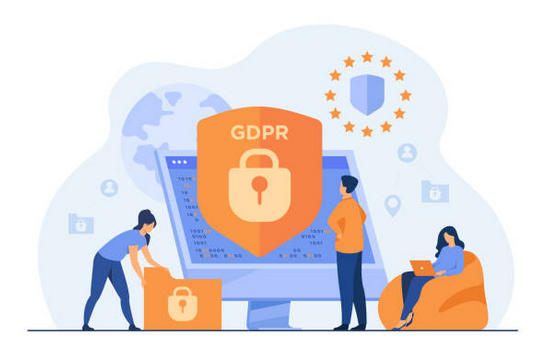You may have heard about the General Data Protection Regulation (GDPR), but have you considered what it means for your small business? As your trusted Managed Service Provider (MSP), we aim to keep you informed and well-prepared. We’re not just talking about penalties and regulatory lingo but practical steps you can take to align your operations with GDPR requirements.
Why this Matters to you
As a Canadian or US Company that is likely reading this you might wonder why this matters to you? While the GDPR regulations are for EU residents if your company sells services or products to the EU and collects any customer data you fall into the jurisdiction of these regulations and compliance becomes mandatory.
It’s important to note that these are great business and security practices even if you don’t have EU customers, we’re excited to share our knowledge with you below.

GDPR: The Essentials
Simply put, GDPR is a European Union (EU) regulation that significantly enhances the privacy rights of individuals. It applies to any business that processes the personal data of EU residents, regardless of where the company is located. Failure to comply can result in substantial fines—up to €20 million or 4% of your annual global turnover, whichever is greater.
Fundamental GDPR Principles for Small Businesses
Data Minimization
Collect only what you need. GDPR emphasizes the principle of “data minimization,” which means you should only gather data that is strictly necessary for the purpose you’ve communicated to your customers.
Obtain Explicit Consent
Transparency is crucial. Before you collect or process any data, you must have explicit consent from the individual. Vague terms and conditions won’t cut it anymore; you have to be clear about what data you’re collecting and how you’ll use it.
Right to Access and Erasure
Individuals have the right to access their data and request that it be deleted under certain conditions. Make sure your systems allow for easy data retrieval and deletion.
Security Measures
Invest in secure data storage solutions. This could mean encrypted databases, regular security audits, or even hiring a Data Protection Officer, depending on the size and scope of your business.
Practical Steps to Achieve Compliance
Conduct a Data Audit
Map out where you’re storing data, who can access it, and how it’s used. This will give you a clear picture of your data flows and help identify any areas that need tightening up.
Update Your Privacy Policy
If you haven’t done so already, revise your privacy policy to outline your GDPR-compliant practices clearly. Make this accessible on your website and any customer interfaces.
Train Your Team
Everyone in your organization should know GDPR and how to handle personal data responsibly. This is not just a job for the IT department; it’s a company-wide responsibility.
Implement Data Security Measures
Think firewalls, encryption, and regular security audits. Even basic steps like ensuring all employee passwords are vital and frequently updated can make a big difference.
Conclusion: Why Compliance Matters
In an age where data breaches are common, GDPR is a crucial framework for protecting consumer data. Compliance isn’t just about avoiding penalties but building trust with your customers and stakeholders. By taking GDPR seriously, you’re sending a message that you respect your customers’ privacy and are committed to protecting their data.
We’re here to help guide you through this journey to compliance. Please reach out if you have any further questions about GDPR and how it impacts your small business.
Contact Armada IT Services for a no-obligation assessment of your situation.

Recent Comments